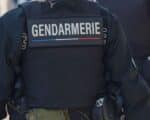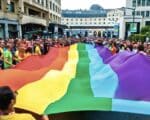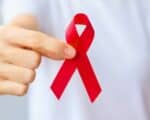Plus d’une centaine de personnes, « homosexuelles ou soupçonnées d’appartenir à la communauté », entre 15 et 50 ans, y compris des personnalités de la télévision locale et membres des instances religieuses, auraient été arrêtées lors de « purges préventives », puis déportées par les autorités tchétchènes vers d’anciennes prisons militaires secrètes, notamment dans la ville d’Argoun, non loin de Grozny, pour y être torturées ou battues à mort, selon le quotidien indépendant russe Novaïa Gazeta, relayé par le Courrier international.
Une vaste opération de répression et d’intimidation motivée par les démarches de militants LGBT au début du mois de mars pour l’organisation de Prides dans la région, à prédominance musulmane, explique la journaliste, spécialiste des Républiques du Caucase du Nord, qui a enquêté et recueilli les témoignages d’anonymes, ex-détenus, évadés ou rançonnés, confirmant les « sévices », pour en outre leur extorquer d’autres noms.
 Un représentant de la présidence tchétchène, Alvi Karimov, a réfuté les accusations : « il n’y a pas d’homosexuels en Tchétchénie, alors comment réprimer des gens qui n’existent pas ? Et si des cas se manifestaient, la police n’aurait pas non plus à s’en inquiéter. Leurs proches s’arrangeraient pour les envoyer dans ces endroits d’où l’on ne revient jamais », a-t-il indiqué à l’agence de presse Interfax.
Un représentant de la présidence tchétchène, Alvi Karimov, a réfuté les accusations : « il n’y a pas d’homosexuels en Tchétchénie, alors comment réprimer des gens qui n’existent pas ? Et si des cas se manifestaient, la police n’aurait pas non plus à s’en inquiéter. Leurs proches s’arrangeraient pour les envoyer dans ces endroits d’où l’on ne revient jamais », a-t-il indiqué à l’agence de presse Interfax.
Ekaterina L. Sokiryanska, médiatrice au sein de l’International Crisis Group, a toutefois confirmé ce 1er avril « de nombreux signaux provenant de trop nombreuses sources pour ne pas être vrais ».
Interpellé par plusieurs organisations, un porte-parole du Kremlin, regrettant ses lacunes « en relation non-traditionnelle », a conseillé aux victimes de porter plainte. La médiatrice russe pour les droits de l’homme, Kheda Saratova, s’est d’ailleurs étonnée qu’il n’y en ait aucune.
Mais « personne n’ose parler aux observateurs étrangers ni même anonymement aux journalistes par crainte des représailles, alors une plainte officielle contre des responsables locaux de la sécurité, ce serait inévitablement se condamner », surtout dans le climat actuel de tension, a souligné dans un communiqué Tanya Lokshina, de Human Rights Watch à Moscou, exhortant, comme Amnesty international, à une « action urgente », indépendamment de toute plainte.
S’indignant de la déclaration du gouvernement régional qui suggère « une tolérance » pour les meurtriers d’homosexuels, la ministre britannique des Affaires étrangères a également réclamé des traductions devant la justice pour violations des droits de l’Homme, rappelant la Russie à « ses obligations internationales » : « La situation des LGBT s’est considérablement détériorée dans la Fédération et nous attendons du gouvernement russe qu’il s’acquitte de ses responsabilités. »
Appel soutenu par le département d’Etat américain, qui s’est déclaré « profondément dérangé » par ces allégations.
Le réseau LGBT de Russie a mis en place une ligne d’urgence et mail pour aider les rescapés et habitants menacés à fuir ou trouver un refuge, en prévision des « crimes d’honneur », avec avertissement : « certaines propositions sur Internet pouvant être utilisées par les auteurs des crimes pour traquer davantage de personnes ».
Amnesty International a lancé une pétition en ligne.
Valentine Monceau
stophomophobie.com
[spacer]
>> Chechyna has opened the first concentration camp for homosexuals since Hitler, where campaigners say gay men are being tortured with electric shocks and beaten to death.
It comes after it was claimed 100 gay men had been detained and three killed in Chechnya last week. A report by Novoya Gazeta said authorities had set up several camps where homosexuals are killed or forced to promise to leave the republic. One of the camps is reportedly at the former military headquarters in the town of Argun.
President Razman Kadyrov (right), who is a key ally of Vladimir Putin , allegedly ordered the clampdown
Svetlana Zakharova, from the Russian LGBT Network, told MailOnline : « Gay people have been detained and rounded up and we are working to evacuate people from the camps and some have now left the region. Those who have escaped said they are detained in the same room and people are kept altogether, around 30 or 40. They are tortured with electric currents and heavily beaten, sometimes to death. »
One of those who escaped told Novoya Gazeta that prisoners were beaten to force them to reveal other members of the gay community. Another prisoner who fled said that before being incarcerated in one of the camps, he had been forced to pay bribes to Chechen police of thousands of rubles every month in order to survive.
Now the regime had taken another step against gays by creating these camps, the survivor said.
Alexander Artemyev, from Amnesty International in Russia, told MailOnline : « We can only call on the Russian authorities to investigate the allegations. Homosexuals in Chechyna are treated very harshly and prosecuted daily and they are afraid to talk about it. »
« They either have to hide or leave the republic. We are keeping in touch with the LGBT network that helps people in Russia to find shelter. The problem is people there cannot talk about it as it puts their lives and those they speak to, in danger. This is the main issue we are facing in Russia and the main challenge. »
Ekaterina Sokirianskaia, Russia project director for the International Crisis Group, told MailOnline : « The story is very much developing…victims are escaping. »
Last week Chechen police are believed to have rounded up more than 100 men.
Tanya Lokshina, from Human Rights Watch in Moscow, said : « For several weeks now, a brutal campaign against LGBT people has been sweeping through Chechnya. These days, very few people in Chechnya dare speak to human rights monitors or journalists even anonymously because the climate of fear is overwhelming and people have been largely intimidated into silence. Filing an official complaint against local security officials is extremely dangerous, as retaliation by local authorities is practically inevitable. »
« It is difficult to overstate just how vulnerable LGBT people are in Chechnya, where homophobia is intense and rampant. LGBT people are in danger not only of persecution by the authorities but also of falling victim to « honour killings » by their own relatives for tarnishing family honour. »
Last week Novoya Gazeta said Chechen police had rounded up more than 100 men suspected of being gay and killed three.
It claimed that among those detained were well-known local television personalities and religious figures.
President Razman Kadyrov, who is a key ally of Vladimir Putin, allegedly ordered the clampdown, although officially his regime denied the arrests claiming ‘it is impossible to persecute those who are not in the republic ».
Kadyrov, who introduced Islamic rule in the Muslim-majority region, has been accused of earlier human rights violations.
He described the allegations as « absolute lies and disinformation ».
Kadyrov’s spokesman Alvi Karimov told the Interfax News Agency : « You cannot arrest or repress people who just don’t exist in the republic.
« If such people existed in Chechnya, law enforcement would not have to worry about them, as their own relatives would have sent them to where they could never return. »
Chechen society is strictly conservative, meaning that unlike other cases where relatives or rights activists may put pressure on authorities when a homosexual relative disappears, those suspected are likely to be disowned by their own families.
According to the New York Times, gay men on the region have been deleting their social media profiles after it was reported authorities tried to lure gay men into dates and arrested them.
The reports from Russia claim those arrested range from just 15 to 50.
Kadyrov is a strong supporter of Russian president Vladimir Putin.


















